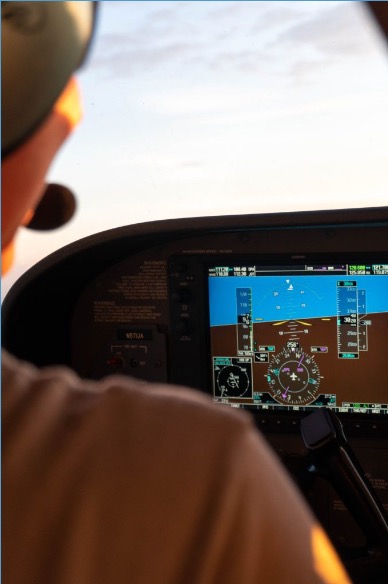
You land at a large airport, exit the ample-sized runway on the first taxiway, and contact ground. You’re unfamiliar with the airport but you’ve briefed the airport diagram. Ground gives you a stream of letters that sound to you like someone reading a Scrabble letter tray with a runway crossing and hold short instructions. Hopefully, you know when to ask for “progressive” instructions.
We also use “progressive” annual maintenance in bigger aircraft. You don’t want an expensive, revenue-producing asset sitting on the ground for a month or two. The FAA allows the annual to be divided up on a schedule that covers all the required inspections and maintenance on a rolling basis. This makes sense since the aircraft is in regular use and it gets regular attention to things that matter.
How about your pilot skills? Wouldn’t a “progressive” flight review make better sense? Does it seem reasonable that a pilot who doesn’t fly much will be anywhere close to current after 23 months of inactivity? They need a review of their skills. Or consider an active pilot who flies weekly, almost always on an IFR flight plan. When was the last time they did a stall, or a go-around (yes, that’s different than a missed approach)?
Luckily for us pilots there is an app to help. The FAA cleverly created the FAASafety WINGS program to function as a “progressive flight review” with credit given for both ground and flight activities. The good news is that many of you are already taking advantage of the ground portion of your education when you attend CEPA’s monthly safety meetings. That QR code and meeting quality survey earn you WINGS credit for each meeting you attend. All that’s left is for you to fly with an instructor and knock out a flight activity every year, or better yet, every few months. That earns you a WINGS phase, which is equivalent to a flight review. And it’s not just a piece of paper (virtual or printed) in your logbook; it is recorded on the FAA’s record-keeping system.
Luck favors the prepared pilot. Get to a CEPA’s WINGS safety meeting and go fly with your favorite instructor, regularly. That will help make your flying as safe as possible.
Michael Baraz, President, Chicago Executive Pilots Association
